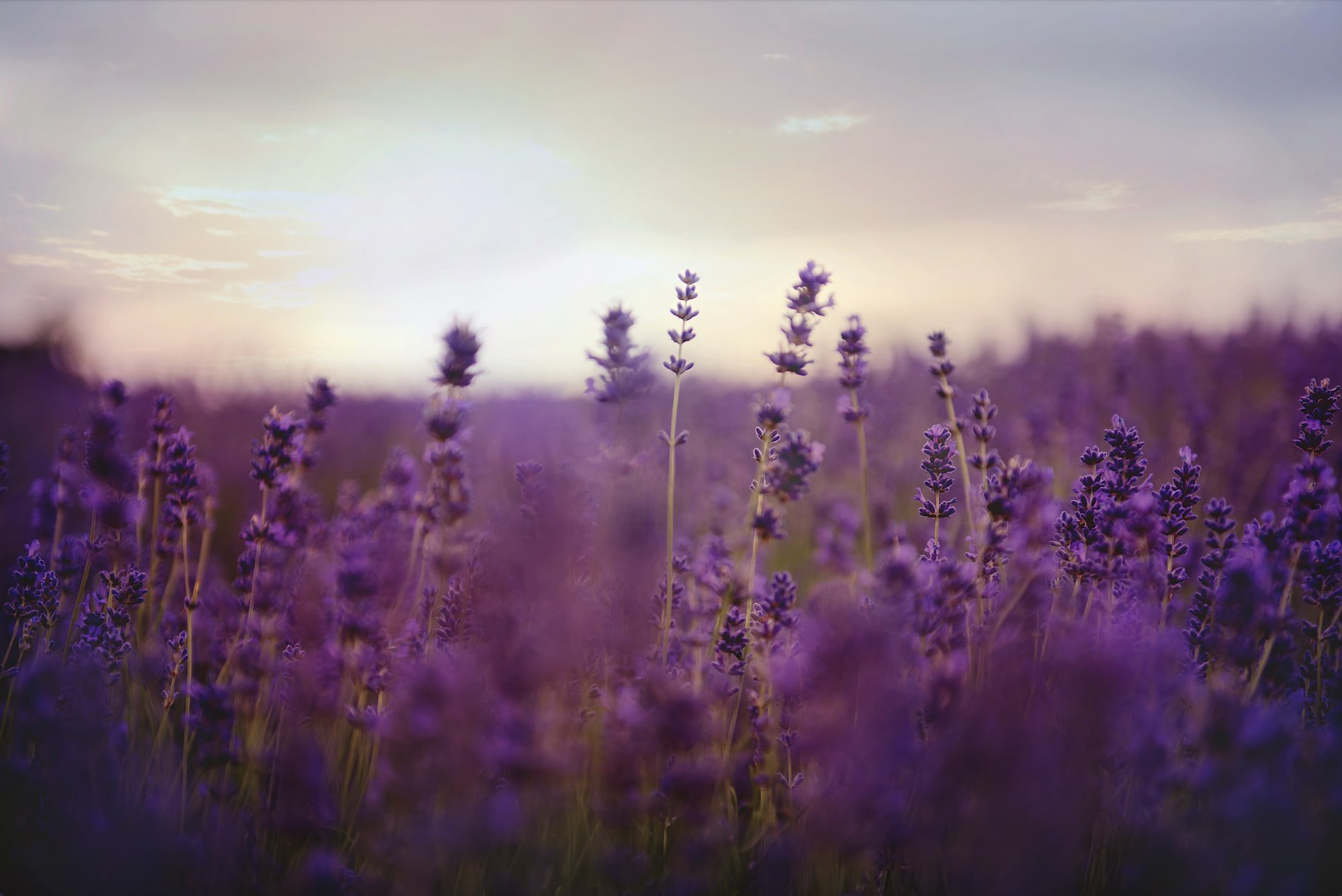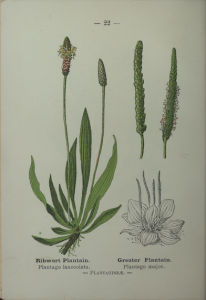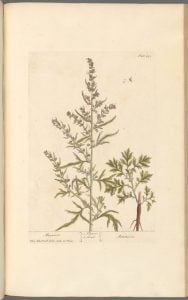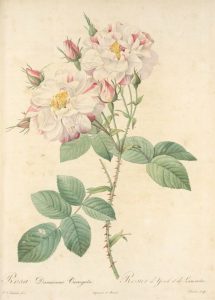Is It Pretty and Sweet? It's Probably a Venusian Plant

When following the history of Western medicine back to its origins, there exists a deep relationship between astrology and herbalism, a system used to diagnose disease and leverage plants for their healing effects. Born from a collaboration of Egyptian and Greek. knowledge in the Hellenistic period, Iatromathematica was the synthesis between astrology and herbalism.
According to the doctrine of Babylonian melothesia—the science of zodiac signs and the human body—it was thought by the physicians of the Classical and eventually the Medieval and Renaissance periods that the seven visible planets have energetic correspondences on Earth, and that their qualities are reflected in our bodies and constitutions. The planets’ qualities were also observed in the flora, fauna, and minerals of our natural world, and held clues as to what cures they were useful for.
What do the stars have in store for you this month?
Nicholas Culpepper, who had an intimate understanding of astrology and herbalism, is famous for this quote, which reveals the value once placed on astrology and medicine belonging together: “Physick (medicine) without astrology is like a lamp without oil.” Though this cosmology is no longer the prevailing worldview, it is alive and well in the arts of medical astrology, herbalism, and magic, providing a means for us to come into relationship with planetary and plant allies in our holistic practices. Knowing astrology and the qualities of the planets is a “lamp” that illuminates a map to understanding our bodies and their connection to nature and the cosmos.
In this series, we will introduce the correspondences between each of the seven classical planets and the plants they are associated with; we will explore how to see planets in plants so that we can identify their nature. Finding plants in their environments gives us clues as to their uses and qualities, as they have adapted to environments that are similar to imbalances in our bodies we need to treat. Working with these plants medicinally invites their quality into us so that we may take on their balancing effects, helping us enjoy herbs in our daily lives with more confidence and clarity.
Your Vedic astrological chart contains the wisdom of the ages.
[Note: This series is for entertainment and inspirational purposes only, and not intended to replace licensed medical care.]
Part 4: VENUS
Qualities
Venus as a planet signifies relationship—the attraction and cohesion that hold all connections together. Considered a cool and moist planet, its influence on our bodies and emotions are thought to be benefic and supportive. Its plants are used to nourish, soothe, and tone, meaning they help to build up and repair our tissues. Venus is connected to comfort, luxury, pleasure, and nourishment, so imbalances of Venus can arrive from overindulgence in these. Conversely, in the case of emaciation, Venusian herbs may help restore a depleted system.
Read me: These Mercurial Plants Promote Calm and Balance
Organ Systems
Organ systems traditionally attributed to Venus are the geno-urinary system, which includes the bladder and kidneys. Venus, with its associations to desire, love, affection, and sexual connection, is also connected to healthy genital and reproductive function. One of the classical health disorders—venereal disease—has Venus encoded in the name, as old-world physicians recognized that imbalances of Venus presented in vulnerabilities and infection in this area. Our circulatory system and its veins, also known as the venous system, was long ago named for its connection to Venus. Diabetes, which presents as the bodies inability to regulate the processing of sugar is also known as another disorder associated with Venus, as sweetness is a prime Venusian quality.
In classical astrology Venus rules over 2 signs, Taurus and Libra, which express Venusian constitutions and health tendencies in similar, but elementally different, ways. Through Taurus, a fixed earth sign, Venus’ influence tends to present as the building and accumulating tendencies of this planet, bestowing Taurus folks with sturdy bodies, healthy appetites, and the ability to store resources. This can make for strong, resilient systems, but the fixed nature of Taurus can bring tendencies for blockages in circulation, sluggishness, and low energy. Venus, being cold and moist, and Taurus, being cold and dry, combine to create a phlegmatic and melancholic constitution, which is prone to low digestive fire and congestion.
In Libra, Venus works through a cardinal air sign, which is warm and dry, to create a more sanguine constitution, which may be vulnerable to a dissipation of energy and dehydration. The kidneys and urinary system of Librans may be somewhat more vulnerable to imbalances, and they should protect their lower back from cold, stiffness, and overwork. Librans may want to move, change, and be sociable and busy, but can get easily energetically depleted and dehydrated. As such, they need to keep their nourishment and sleep cycles balanced and steady.
Is anything in retrograde right now?
Venusian Plants
In nature, we can identify Venus’ plants by their beautiful flowers, often appearing in soft, elegant colors like pink, violet, or white (think roses, violets or Lily of the Valley). These blooms have sweet fragrances and tastes, with delicate petals. Venusian plants can be cooling or moistening—making them restorative and healing—or have warming, drying, or astringent qualities, meaning they can improve circulation, tighten and tone lax tissues, or dry up excesses of moisture. Foods associated with Venus are sweet, juicy, and refreshing: examples include figs, sweet oranges, peaches, plums, apricots, and grapes. Walnuts and almonds, which are rich in oils, proteins, and nutrients, are also considered Venusian foods.
Plantain (Plantago major)

Broadleaf plantain grows abundantly as a weed and has many medicinal uses. It can be made into a poultice to draw out stingers and infections and is cooling to burns and skin irritations. With Venusian qualities of connection and reparation, its astringent qualities can help tighten and close wounds and mend raw digestive tissues. Plantain has a mucilaginous quality, which soothes pain, and contains many vitamins and minerals, making it a nutritious herbal addition to salads.
Mugwort (Artemisia Vulgaris)

Mugwort has many healing uses, including assistance with women’s menstrual cycles, an important Venus association—mugwort tea and tincture has a warming quality to help increase circulation and soothe abdominal cramping. Its analgesic qualities make mugwort oil helpful to soothe sore muscles and pain, and was placed in the sandals of Roman soldiers, and in the shoes of travelers on long pilgrimages in the Middle Ages to protect the feet from soreness. It has long been considered a magical plant, worn for protection to ward off evil spirits, and drinking mugwort tea helps to induce vivid dreams for spiritual insight. Mugwort is used in Chinese medicine in moxibustion to clear energetic blockages in the body’s meridians.
Damask Rose (Rosa × Damascena)

Damask rose, with its beautiful color, elegant bloom, and sweet fragrance, is a prime Venusian plant. It has many uses, from inspiring affection in the form of a bouquet to soothing and restoring dry, irritated skin in beauty remedies. In Indian medicinal practice, foods with rose petals and rose water are thought to be especially nourishing for restoring an emaciated body and to comfort a sad heart. In herbalism, rose tea and extract are used to calm mood swings, restore imbalances in the menstrual cycle, and to heal and repair the circulatory or “venous” system.
Art by Debra Stapleton
Rosa x Damascena illustration:
The Miriam and Ira D. Wallach Division of Art, Prints and Photographs: Print Collection, The New York Public Library. (1817 – 1824).
Rosa Damascena Variegata; Rosier d’Yorck et de Lancastre (syn)
Unlock Your Year Ahead. Get your personalized 2026 Horoscope, your essential roadmap with in-depth insights into love, career, health, and finances. Step into your future with confidence!



